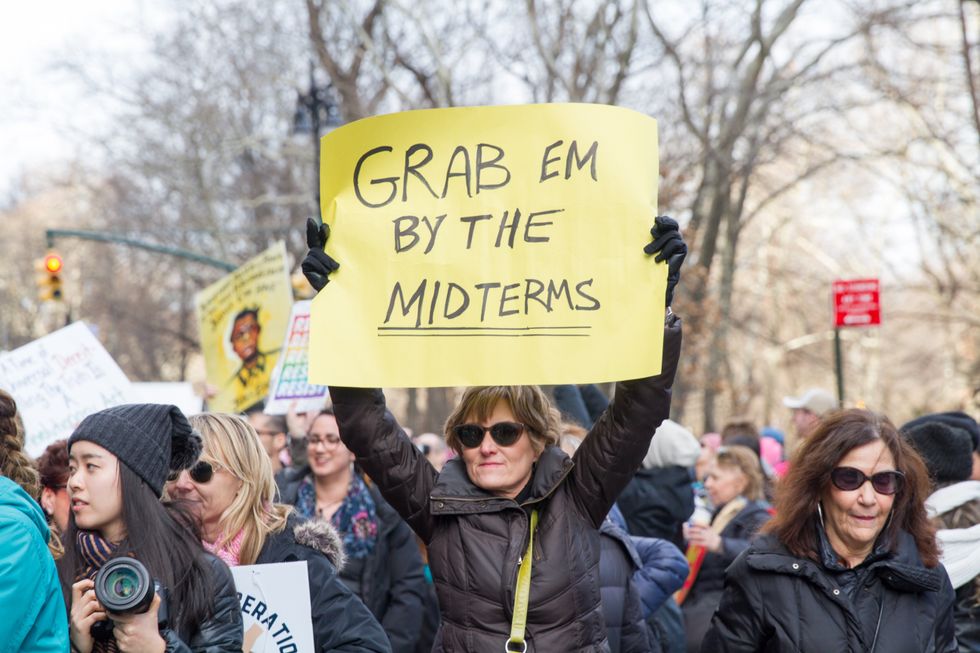College is a really interesting time. It's the first taste of adulthood before we're thrown into the real world, and there are lots of things that we college students get to learn during this transition period. One of the more weighty parts of adulting happens to be coming up very soon: voting.
I know not everyone is registered to vote this year, but if you are, it isn't something that should be taken lightly. With our state laws especially, it's very important that you vote, because your voice matters. I'm writing this, fellow Washingtonians, to implore you to vote for 1631.
The first time I heard about 1631 was in a commercial while I was watching a show on Hulu, and it was against the measure. Then, not even five minutes later, I saw another commercial, this time in support of the measure. With all the information being tossed around right now about it, it can be pretty hard to distinguish what the measure is actually about and what it will do. I did some research, and read the measure for myself. This is what I learned.
1. 1631 is NOT a tax
For some reason, everyone seems to think that 1631 is a tax. When really it's actually just a fee. The difference lies in how the funds received can be used. The revenue from taxes can be used for any governmental function that is determined to have a public purpose by lawmakers. In other words, the money can pretty much be used for whatever the government wants as long as it seems like there's a public purpose behind it.
Fees, on the other hand, are a lot more specific. The money gained from fees can only very specifically be used for providing services, benefits, or to reduce the effects of said fee. NOT for general government purposes.
2. 1631 isn't directed at consumers
Another thing that people seem to be very afraid of is the idea of paying more money into the government, and that's not what the point of this measure is at all. What the measure does is create a fee for the state's large emitters of pollution. The fee will start out with $15 per metric ton of carbon content (in 2020) and will increase by $2 each year until our state's greenhouse gas reduction goal (to be completed by 2035) is met and it seems to be on the path to meeting the state's 2050 goal.
At this point, the fee will no longer increase, except to be adjusted with inflation. So the measure isn't even technically directed at the consumers. Is there a risk that companies will try to offset the cost of the fee by raising prices? Yes, that is definitely a risk. But if they take the steps to instead reduce their greenhouse gas output, the fee that the large emitters have to pay will be less. So overall it would benefit them more to just go along with the changes and decrease their pollution.
3. The exemptions are not what you think
One of the biggest points of controversy with 1631 is that people think it excuses the state's biggest polluters. While it is true that there are exemptions for the fee, these exemptions are very specific. The first exemption excuses coal closure facilities that are legally bound to comply with greenhouse gas emission performance standards by December 31, 2025.
This includes every coal closure facility that emitted more than one million tons in any calendar year prior to 2008. There are five oil refineries in Washington state, and three of those fall underneath the top 10 emitters in the state. Due to a law passed in 2011, all five of these oil refineries are required to either maintain an energy efficiency that is above-average when compared to the rest of the state or reduce their greenhouse gas emissions by 2025.
Washington's biggest emitter is the TransAlta Power Plant in Centralia. In 2014 they produced seven point four million metric tons of greenhouse gases, almost triple that of the state's second highest polluter. A lot of people are outraged because 1631 completely exempts this power plant, but the reason why it's exempt is because it's already set to close down its coal plant by 2025.
In 2011, the TransAlta Energy Transition Bill was signed into law by Governor Christine Gregoire, and it requires the TransAlta plant to cease half of its coal-burning by 2020 and the other half by 2025. They're already trying to develop the transition from coal burning to other energy resources such as wind and solar, which is why this plant is exempt. The other exemptions are less controversial and are mainly designed to avoid unnecessary fees.
4. There is a set plan to hand the money
While the measure doesn't have exact plans for how the funds from this fee will be spent, it is specific on how it will be distributed and managed. In the writing of the measure, it specifically states that 70% of the money must be put in the Clean Air and Clean Energy Fund, 25% must be put into the Clean Water and Healthy Forests fund. The remaining 5% must be put into the Healthy Communities Fund.
Moreover, these funds are run by committee and the public board that will be created by the measure, headed by the chair of the board, who has to have knowledge about and a demonstrated commitment to reducing pollution and moving towards a cleaner energy society. The committees will also include tribal members and representatives of the lower-income communities that might be affected by the measure so that they are able to receive help if they should need it.
Obviously, I haven't covered everything in the bill, but if I haven't convinced you to vote for it, I can at least hope you'll do more research on it so that you can make the most educated decision before you submit your ballot. Happy voting!














